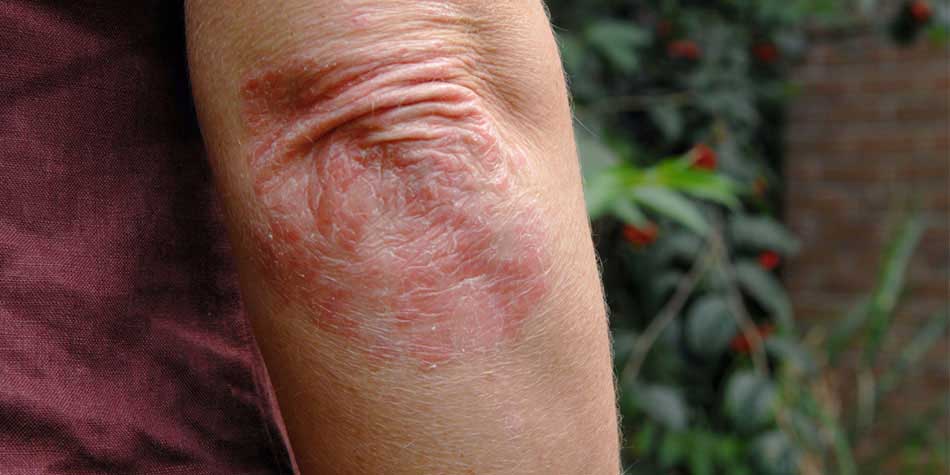
August is Psoriasis Awareness Month. If you or someone you love has the condition, you know living with psoriasis can be challenging. Psoriasis can affect both physical and emotional health. Knowing how to manage your symptoms can help.
What is psoriasis?
Psoriasis is a common skin condition that affects both children and adults. The condition is caused by a problem with T-cells that work in balance within your immune system. T-cells usually help us fight off infection or injury. In psoriasis, T-cells overreact and trigger skin cells of the body to over-produce. The result is red, itchy, scaly patches of skin. Psoriasis is not an infection and you can’t catch it from someone who has it.
Symptoms
Symptoms can come and go and may be triggered by a variety of things, such as an illness, injury, stress, medications, alcohol, or smoking.
Symptoms of psoriasis include:
- Red patches of skin, covered with thick scales
- Dry, bleeding, or cracked skin
- Skin that itches or burns
- Nails that are thick or have ridges
Psoriasis is also associated with a form of arthritis – psoriatic arthritis – which causes skin symptoms and swollen or stiff joints. Symptoms can range from mild or severe.
Doctors think that genes may play a role in psoriasis as well. If you have a family history of the condition, you may also be at higher risk for developing it. Having psoriasis can also put you at risk for other chronic health conditions.
Living with psoriasis
Treatment for psoriasis may include:
- Using medicated creams to reduce itching, inflammation, redness and scaling.
- Taking medicines, such as steroids or special biologic therapies.
- Using a special form of light therapy.
Sometimes a combination of treatments is used to manage the condition.
Along with medicines and other therapies, it’s important to take care of yourself
- Find ways to reduce stress. Stress is a common trigger for psoriasis. Explore stress reduction techniques such as meditation, journaling, yoga or tai chi.
- Reduce the urge to itch.
- Keep your skin moisturized.
- Use cool packs on affected areas.
- Take cool showers or baths.
- Use creams to reduce the amount of scaling on the skin.
- Watch for symptoms of depression. Psoriasis can put you at higher risk for depression. If you are not able to sleep, have a lack of energy, or have little interest in the things you usually enjoy doing, it’s important to reach out for help right away.
Visit our physician directory to find a dermatologist near you.
Sources
- National Institute of Arthritis and Musculoskeletal and Skin Diseases. Psoriasis.
- National Psoriasis Foundation. About Psoriasis.
$webqFacilityNumber
Need a Physician?